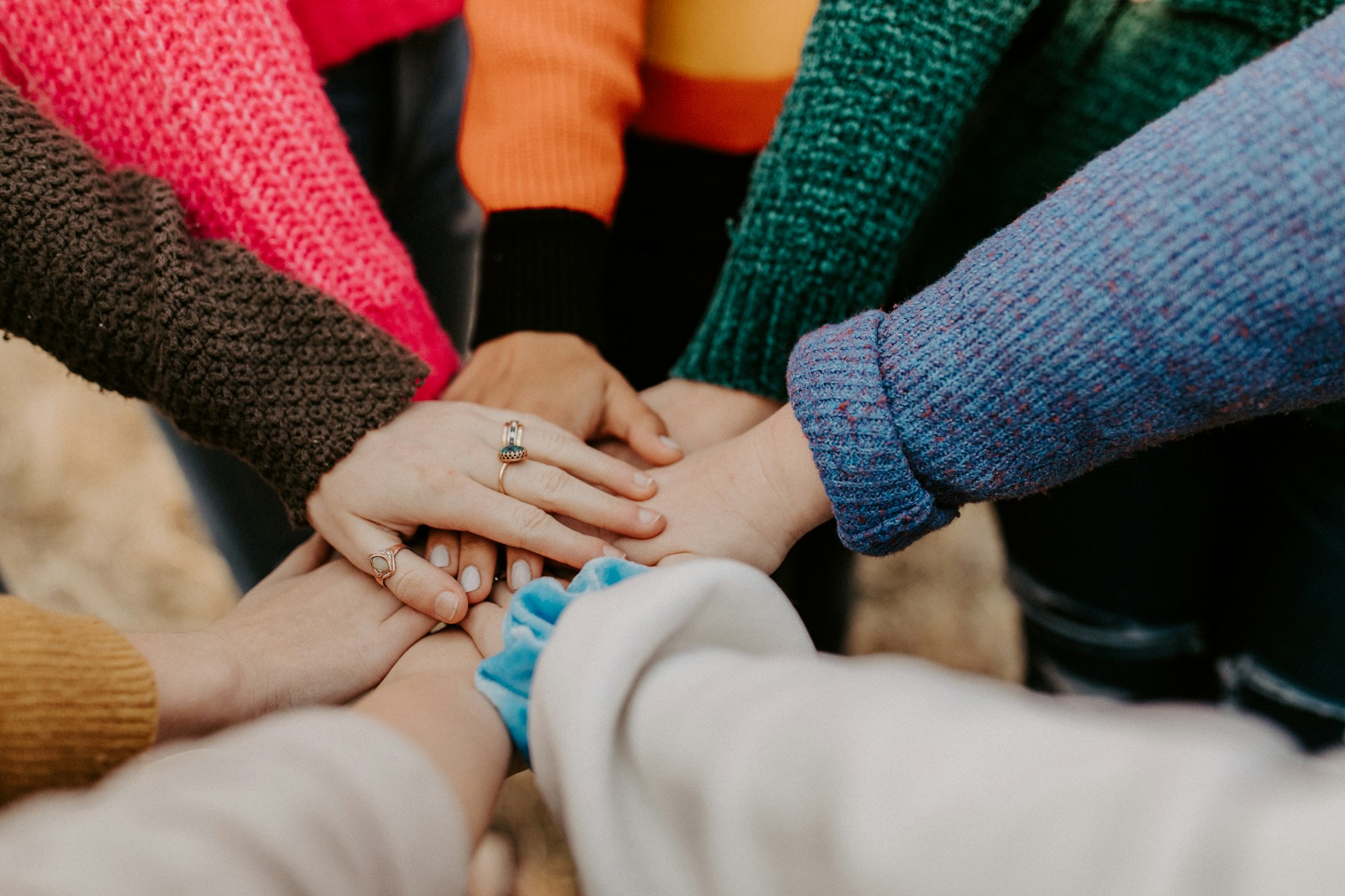
If You Build It, They Will Come
A former Obama official makes the case for a U.S.-led Summit for Democracy.
A year ago, then-presidential candidate Joe Biden proposed what he called a “Summit for Democracy.” Its purpose, he said, was to “repair and reinvigorate our own democracy” while strengthening the “coalition of democracies that stand with us around the world.” Since then, we’ve lived through the 2020 presidential election, Donald Trump’s seventy-seven-day attack on the results, and a mob storming the U.S. Capitol. It’s not surprising perhaps that a common reaction to the summit proposal is to wonder: Is now really the time, and are we the right conveners?
In short, yes, albeit with caveats. The summit’s agenda must encompass both domestic and international issues and must be constructed collaboratively, with the appropriate dose of humility, shaped by much consultation with citizens and governments alike.
As with most attempts at international cooperation, this one has a history. In 1948, during a moment of postwar idealism, the United States was a major force behind the drafting of the UN’s Universal Declaration of Human Rights. For a long time after, in part because of the Cold War, the United States emphasized the portions of the document dealing mainly with political and civil rights but not those addressing socioeconomic issues. For domestic and international reasons, the summit can facilitate once-in-a-generation reform of how the United States promotes democracy.
The emphasis on political and civil rights was, of course, the highlight when the Berlin Wall fell, the Soviet Union collapsed, and we entered what might be called the golden age of international democracy promotion. But the golden age didn’t last long. After 9/11, breakthroughs for democracy grew increasingly rare. It was more common to see promised transitions to democracy marred by regression and corruption. Even worse, democracy promotion became increasingly associated with “regime change” and the wars in Afghanistan and Iraq. It got a bad name.
Meanwhile—first in Russia, then metastasizing to dozens of countries—governments engineered a backlash against the growth of civil society organizations by adopting hundreds of laws that constricted the space in which these organizations could operate. In the local populations, this backlash was met with indifference, by and large. Emboldened, Russia then got busy launching hybrid and conventional military attacks, further eroding the stability of democracies. And China has been rising, not just at the UN but outside it, through the Belt and Road Initiative.
In light of changes like these, postwar democracy promotion was looking dated even before America’s 2020 election.
Today, we tend to view the gold standard of global development as demand-driven—that is, locally generated and responding to needs. Yet the U.S. approach to democracy promotion is still mainly a supply-side operation, financed by congressional appropriations to the executive branch before being distributed to NGOs to implement with relatively little input from local communities.
At the same time, the most critical current threats to democracy worldwide are home-grown, exploited and amplified by foreign adversaries. In particular, the massive scale of 2020s crises—in health, the economy, racial justice, the environment, and politics—have seriously harmed America’s ability to promote democracy and counter authoritarianism. This was true even before the Trump Administration’s total departure from normal procedures and, eventually, Trump’s attempts to overturn the 2020 election.
Down, But Not Out
Like some of our allies, we are a democracy in distress. Especially since the 2008 financial crisis, democracies have struggled to deliver what their populations want and need. Populists have come forward to fill the gaps. So, we’re certainly in no position to lecture other countries about democracy. But, in this moment of our own vulnerability, we have a globally agreed framework that can help on the delivery front.
In 2015, the global community adopted the Sustainable Development Goals that run through 2030. The Obama Administration helped shape them and, since their adoption, our allies have committed themselves to implementing them. It’s not just national governments that are involved. Cities around the world, which in recent years have taken increasing foreign policy initiatives on their own, have joined the movement. The city of Pittsburgh, for example, recently promoted what it called a “Marshall Plan for Middle America;” the plan is aligned with the Sustainable Development Goals.[1]
Moreover, despite the word “sustainable” in the title, the goals are not just about climate. They also address inequality and corruption and seek to advance sound governance and diversity, not just in what used to be called “underdeveloped” nations but everywhere development happens—which is to say, everywhere.
What does this have to do with us? It’s this: The Sustainable Development Goals have rights and democratic values woven through the framework. By explicitly placing our domestic and international development efforts within this framework, which was adopted overwhelmingly by the member states of the UN, we will make it more difficult for China to dominate the development agenda with its ostensibly values-free assistance programs—which in fact saddle countries with heavy debt.
Now, to process. We should make use of the new participants in the democracy promotion world—U.S. mayors, universities, local NGOs and activists, and the private sector. When the U.S. government participates in a multilateral setting like the UN, it should provide room for these new players as well. For the last few years, groups like the United Nations Foundation and the Brookings Institution have advocated this type of broadening of the arena. Those efforts could use a lift with support from the U.S. Mission to the UN (USUN).
Further, if a meeting like the democracy summit is going to get off the ground, it will need a great deal of preparation. In normal circumstances, policymakers operate happily in their silos and resist breaking out of them. The White House—more specifically, principals at the National Security Council (NSC) and Domestic Policy Council—will have to take charge of coordinating and designing the summit as a whole. Staffers, for their part, can spend time traveling and listening at town halls and in other consultations at home and abroad.
As with previous conferences, the democracy summit would be arranged through the NSC, the State Department, USUN, and embassies throughout the world and would be composed of nations that have made commitments to its goals. But this must not be just another government-to-government meeting. There are other models, like the biennial summits, organized by the Open Government Partnership with governments and civil society groups, in which both kinds of organizations are equally represented. The State Department can help in this work through an office dedicated to subnational diplomacy raising up parts of U.S. civil society and cities to engage in the summit and beyond.
The listening tours would be aimed at soliciting and promoting the various themes of the democracy summit, including (a) domestic reform, likely encompassing issues of health, education, enfranchisement, racial justice, and inequality; (b) joint international efforts at pushing back on authoritarianism, including ways to deal with corruption and disinformation; and (c) emergency responses to human rights crises, plus longer term support for human rights defenders in exile.
Connecting the Dots
The year 2021 has a number of meetings on the international calendar that can build out the ideas to be raised at the summit. (A domestic calendar must be similarly created.) In June there will be a Special Session on Combating Corruption, which could deal with closing legal loopholes on beneficial ownership, elaborating on the adoption and application of unexplained wealth orders, and proposing regulations applicable to businesses in democracies that are used to conceal illicit funds. This Special Session could also deal with the tracking of the $12 trillion in covid-19 relief and recovery funds to prevent the distribution of the funds from exacerbating inequality.
There will also be a G7 meeting this year, led by the United Kingdom and focusing on open societies. There will be an annual review of the Sustainable Development Goals at the High-Level Political Forum in July of 2021. As 168 countries have done, the United States should commit to organize a voluntary national review of the implementation of the goals. In November, the UN Climate Change Conference of the Parties convenes and ought to make clear that climate action will be accompanied by action on reducing inequality. The Open Government Partnership will hold its tenth anniversary meeting in Korea in December.
The civil society organizations that participate in the summit, in particular, should focus on advancing democracy at the local level, tracking covid-19 relief packages, and sharing their experiences and practices with those of counterparts in other countries. And the State Department and USAID should come ready to commit to creating a workforce conversant in data-driven approaches and bringing democracy promotion more in line with best practices in global development.
It would be better to launch the summit with relatively few countries, perhaps even just five to ten, selected together with our allies, leaving plenty of room for the civil society participants. And with all the work that will have to be done to prepare for the summit, it’s unlikely that the meeting can be convened until the end of 2021 or early in 2022.
The United States has an enormous amount of work to do in digging out of the wreckage of the Trump Administration and the damage caused by covid-19. Yet we are not the only democracy suffering, and the Sustainable Development Goals can help us begin the repair. If the Biden Administration provides enough high-level support and conceives of a broad enough definition of the parties relevant to advancing democracy at home and abroad, it can meet this moment.
Sarah E. Mendelson is Distinguished Service Professor of Public Policy and head of Carnegie Mellon’s Heinz College in Washington, D.C. This essay was informed by participation in a task force organized by Freedom House, CSIS, and the McCain Institute on strengthening U.S. democracy promotion and combating authoritarianism. The views are hers alone. Twitter:@SarahMendelson
American Purpose newsletters
Sign up to get our essays and updates—you pick which ones—right in your inbox.
Subscribe








